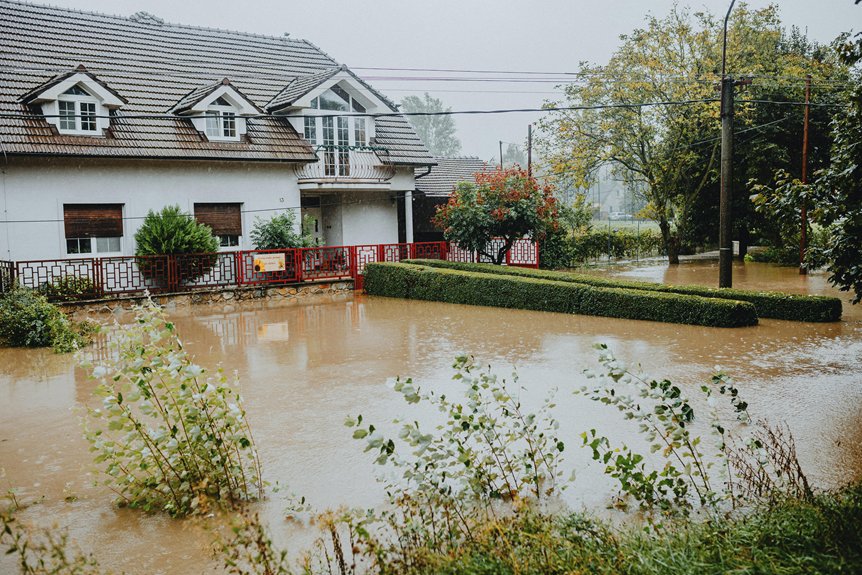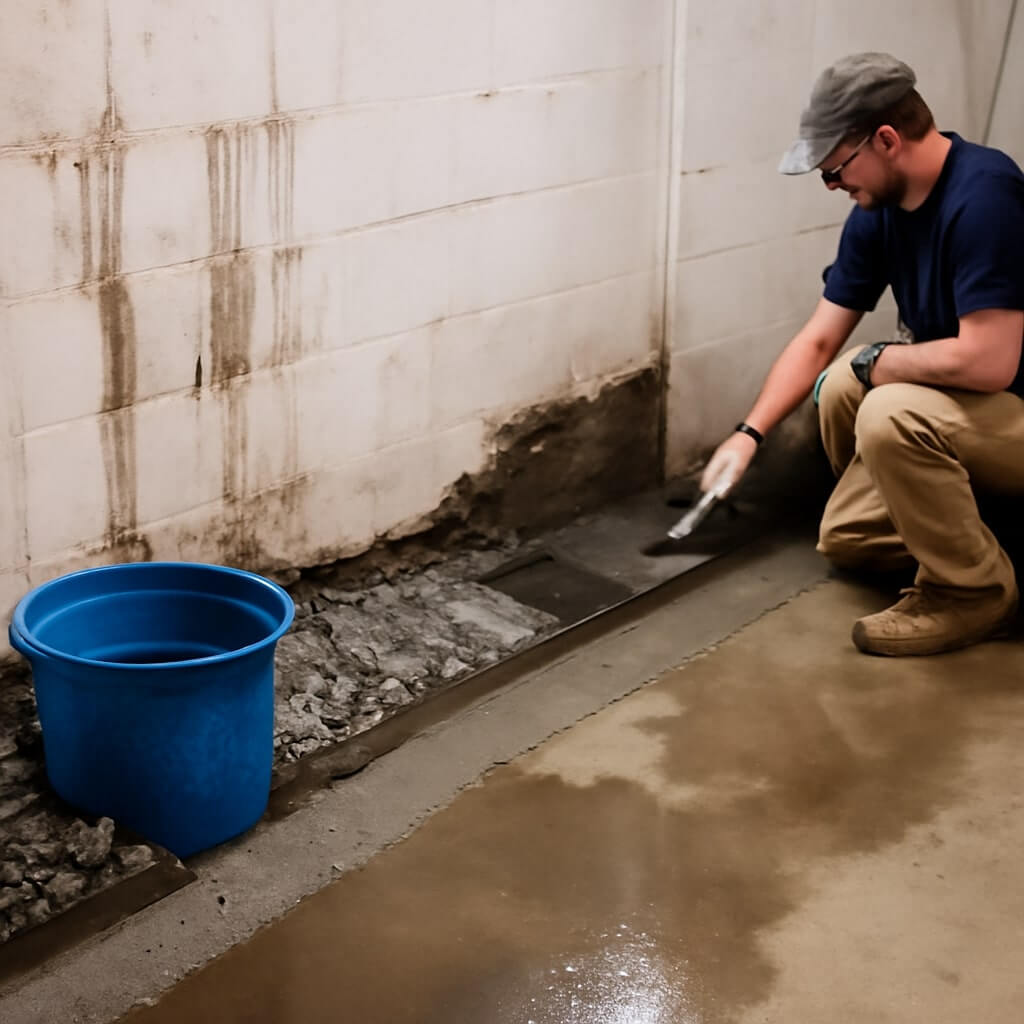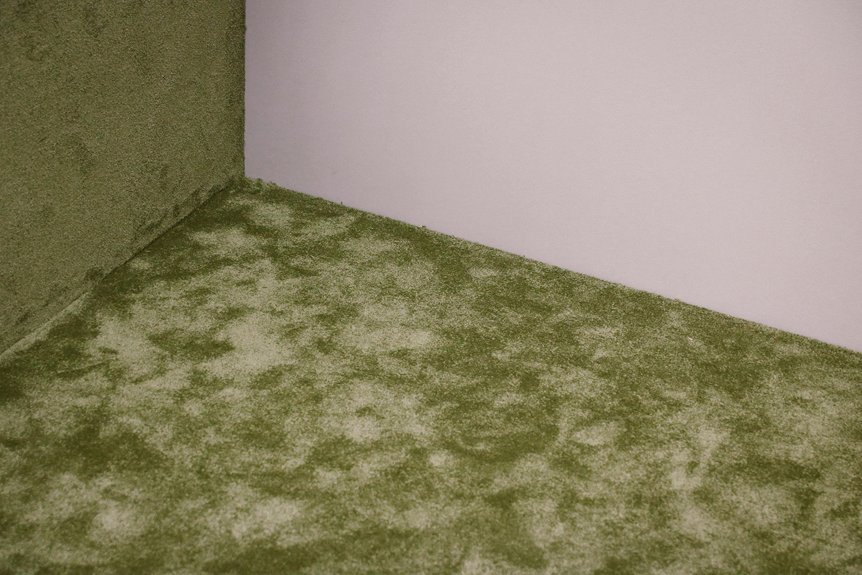If you live in Warren, MI, you’re likely aware of the various factors that can lead to basement water damage. From heavy rainfall to poor drainage systems, several risks can threaten your home. Understanding these causes is essential for effective prevention. By identifying potential issues early, you can take steps to protect your property. Let’s explore these causes and the best methods to prevent costly damage.
Key Takeaways
- Heavy rainfall and flooding in Warren, MI can overwhelm drainage systems, leading to basement water damage if not properly managed.
- Melting snow and ice during spring can create ice dams, causing water pooling and increased basement water levels.
- Poor drainage systems, including ineffective gutters and downspouts, can direct water towards foundations, increasing the risk of water damage.
- Regular inspection and maintenance of sump pumps are essential to prevent failures that could lead to significant water intrusion in basements.
- Implementing waterproofing solutions and landscape grading to direct water away from the foundation helps prevent future water damage risks.
Heavy Rainfall and Flooding
When heavy rainfall or flooding occurs, your basement can quickly become vulnerable to water damage. Effective stormwater management is essential to minimize risks.
Verify your property’s drainage system is clear and functional, directing water away from the foundation. Invest in sump pumps and waterproofing solutions to enhance flood preparedness. Regularly inspect gutters and downspouts to prevent overflow.
It’s also wise to create a flood emergency plan, including securing valuable items and knowing evacuation routes. By proactively addressing these concerns, you can greatly reduce the likelihood of basement water damage and protect your home from the adverse effects of severe weather events.
Melting Snow and Ice
As winter shifts to spring, melting snow and ice can greatly impact your basement’s water levels.
Proper drainage systems become essential in managing this runoff, as inadequate drainage can lead to foundation vulnerabilities and potential water damage.
Understanding these risks will help you take proactive measures to protect your home.
Spring Thaw Impacts
While the arrival of spring brings warmer temperatures and the promise of renewal, it also triggers the melting of snow and ice, which can considerably impact basement water levels.
During this period, you should be aware of the following factors:
- Increased spring runoff can overwhelm drainage systems.
- Thawing cycles may create ice dams, causing water to pool.
- Ground saturation occurs as the soil absorbs excess water.
- Temperature fluctuations can lead to unexpected leaks or cracks.
Drainage System Importance
A well-functioning drainage system is vital for managing the influx of melting snow and ice in your basement. Different drainage types, such as French drains and sump pumps, play an important role in redirecting water away from your foundation.
If your system isn’t adequate, you risk water pooling, leading to potential damage. Implementing effective solutions, like regular maintenance and inspections, guarantees your drainage system operates efficiently during thawing periods.
Additionally, consider landscape grading to promote proper water flow away from your home. By prioritizing these measures, you can greatly reduce the risk of water damage caused by melting snow and ice.
Foundation Vulnerability Risks
When melting snow and ice saturate the ground around your home, the foundation can become increasingly vulnerable to water damage.
To alleviate these risks, consider the following:
- Conduct regular foundation inspections to identify cracks or weaknesses.
- Install proper drainage systems to redirect water away from the foundation.
- Monitor soil erosion around your home to prevent destabilization.
- Maintain landscaping to ascertain that water flows away from your foundation.
Poor Drainage Systems
Ineffective drainage systems can lead to significant water damage in basements. If your property lacks proper drainage solutions, water can accumulate around your foundation, increasing the risk of leaks and flooding.
One critical aspect is landscape grading; verify that the ground slopes away from your home to direct water away from the foundation. Additionally, consider installing gutters and downspouts that efficiently channel rainwater away from your property.
Regularly inspect and maintain these systems to prevent blockages. By addressing poor drainage proactively, you can safeguard your basement against potential water damage and maintain the integrity of your home.
Foundation Cracks and Settling
While foundation cracks and settling may seem like minor issues, they can lead to serious water damage in your basement if left unaddressed.
To prevent problems, consider these key steps:
- Schedule regular foundation inspections to identify cracks early.
- Address soil erosion around your home to maintain stability.
- Guarantee proper drainage to divert water away from your foundation.
- Fill small cracks with appropriate sealants to prevent moisture infiltration.
Taking these measures can help protect your basement from water damage and maintain the integrity of your home’s foundation.
Don’t underestimate the importance of proactive maintenance!
Faulty Gutters and Downspouts
Faulty gutters and downspouts can lead to significant water damage in your basement if they fail to channel rainwater away from your home effectively.
Regular gutter maintenance is essential to prevent clogs from debris, which can cause overflow and redirect water towards your foundation.
Additionally, improper downspout installation may result in inadequate drainage, exacerbating the problem.
Make certain that downspouts direct water at least six feet away from your home’s foundation to minimize risks.
By prioritizing these measures, you can safeguard your basement against water intrusion and maintain the structural integrity of your property.
Don’t overlook the importance of proper drainage systems.
Sump Pump Failures
Sump pump failures can lead to significant basement water damage if not addressed promptly.
Common issues include power outages, improper installation, and mechanical malfunctions.
Regular maintenance is vital to guarantee your sump pump operates effectively and minimizes the risk of water intrusion.
Common Pump Issues
When your sump pump fails, it can lead to significant water damage in your basement, especially during heavy rains or flooding.
Recognizing common pump issues is vital for preventing failures. Here are four common problems:
- Power Failure: Loss of electricity can stop your pump, so consider a backup power source.
- Clogs: Debris can accumulate, preventing proper drainage; regular checks help.
- Improper Sump Pump Types: Using the wrong pump for your basement conditions can lead to inefficiency.
- Lack of Pump Maintenance: Neglecting maintenance can cause malfunctions, ensuring regular servicing is essential.
Regular Maintenance Importance
Regular maintenance is essential for guaranteeing your sump pump operates effectively and prevents water damage in your basement. By scheduling routine inspections, you can identify potential issues before they escalate.
Check for debris, test the pump’s functionality, and guarantee the discharge line is clear. Implementing preventative measures, such as installing a backup pump and maintaining proper drainage around your home, bolsters your system’s efficiency.
Remember, neglecting maintenance can lead to sump pump failures during critical times, leaving your basement vulnerable to flooding. Regular upkeep not only protects your property but also extends the lifespan of your sump pump.
Stay proactive!
Plumbing Leaks and Burst Pipes
Although plumbing leaks and burst pipes often seem like minor issues, they can lead to significant water damage in your basement if not addressed promptly.
To prevent these problems, consider the following:
- Regular leak detection: Check for signs of moisture or mold regularly.
- Pipe insulation: Insulate pipes to prevent freezing and bursting in cold weather.
- Monitor water pressure: High pressure can stress pipes and lead to leaks.
- Maintain fixtures: Regularly inspect and maintain all plumbing fixtures to catch potential issues early.
High Groundwater Levels
High groundwater levels can pose a serious threat to your basement, especially during periods of heavy rain or snowmelt.
When soil saturation occurs, the ground can’t absorb additional water, causing it to flow toward your foundation. This excess moisture can lead to basement flooding, mold growth, and structural damage.
To mitigate these risks, implement groundwater monitoring systems to keep track of water levels around your property.
Additionally, make certain proper drainage away from your home by maintaining gutters and downspouts.
Taking these proactive steps can help protect your basement from the damaging effects of high groundwater levels.
Conclusion
To protect your basement from water damage in Warren, MI, it’s essential to address the outlined causes proactively. Regularly inspect and maintain your drainage systems, gutters, and downspouts, and make certain your foundation remains crack-free. Investing in sump pumps and waterproofing solutions can provide additional safeguards. By taking these preventative measures, you can greatly reduce the risk of water intrusion and maintain the structural integrity of your home, guaranteeing a dry and safe living environment.




